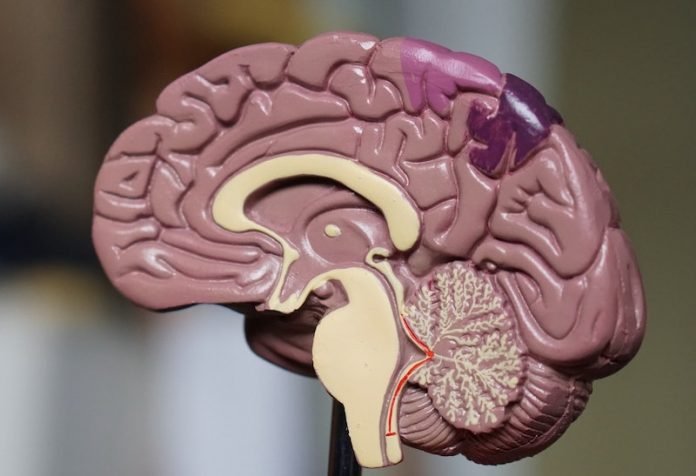
In a new study from UC Berkeley, researchers found anxiety and post-traumatic stress disorder (PTSD) could increase myelin—a substance that expedites communication between neurons—in areas of the brain linked to emotions and memory.
The results provide a possible explanation for why some people are resilient and others vulnerable to traumatic stress, and for the varied symptoms—avoidance behavior, anxiety and fear, for example—triggered by the memory of such stress.
If, as the researchers suspect, extreme trauma causes increased myelination, the findings could lead to treatments that prevent or reverse the myelin production and lessen the after-effects of extreme trauma.
Myelin is a layer of fatty substances and proteins that wraps around the axons of neurons to facilitate the long-distance transmission of signals, and thus, communication between distant areas of the brain.
The new study showed the extra myelination was found primarily in areas associated with memory.
In the study, the team conducted brain MRI scans of 38 veterans—half with PTSD, half without—and found an increase in myelination in the gray matter of those with PTSD compared to that seen in the brains of those not suffering from PTSD.
The team also discovered a similar increase in myelination in the gray matter of adult rats subjected to an acute stressful event.
While not all rats showed long-term effects from the stress—just as not all traumatized veterans develop PTSD—those that did had increased myelination in specific areas of the brain associated with particular symptoms of stress that were identical to that in veterans with PTSD.
Both veterans with PTSD and stressed rats that exhibited avoidance behavior, for example, had increased myelination in the hippocampus, often thought of as the seat of memory.
Those exhibiting a fear response had increased myelination in the amygdala, which plays a key role in our response to strong emotions, such as fear or pleasure.
Those suffering from anxiety had increased myelination in the dentate gyrus, a region critical to learning and memory.
The team says these findings may help develop new treatments. If they see enduring ability to shape myelin content in an adult brain, maybe treatments will help reverse this.
If you care about mental health, please read studies about natural food supplement that could relieve anxiety, and common childhood behaviors that could lead to anxiety in later life.
For more information about mental health, please see recent studies about major cause of social anxiety disorder, and results showing that many people with anxiety could fully recover.
The study is published in Translational Psychiatry. One author of the study is Kimberly L. P. Long.
Copyright © 2022 Knowridge Science Report. All rights reserved.



